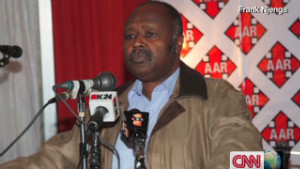My List of
Recommended Bible Study Tools
First of all I will recommend a web site ! You know we are
living in the cyber age and there are some great resources online to help you
study your Bible ( as well as some very very wacko ones – be careful!)
Blue Letter Bible allows you to search the entire text of
the Bible in multiple translations to find verses. In the King James and New American Standard
versions , you will also be able to access Strong’s Exhaustive Concordance definitions
and even Vines Dictionary definitions ( see below for these books).
It is truly an amazing tool!
(In this Blog, I assume a belief on the part of the reader in the inerrancy and Divinity of the Bible.
However for those who have questions I have a couple recommendations at the very bottom.
In the area of
Apologetics you may also want to read other works by Lee Stroebel, Dr. William Lane Craig, Ravi Zacharias, Dr. Craig
Blomberg, Dr. Gary Habermas or Dr. Bruce
Metzger etc….)
Concordance
Strong’s Exhaustive
Concordance
A list of literally EVERY word in the English Bible sorted
alphabetically and with a Hebrew and Greek Dictionary Definition.
If you can think of only a word or two of the verse you’re
looking for and you want to look up what the Bible says about a certain word –
this can all be done through Strong’s (
Other concordances include Young’s and Cruden’s
but Strong’s is the most widely )
Next to the specific word you will find the Verse where it
is located ( i.e. Eph 2:8) and also a number that corresponds to the Hebrew and
Greek dictionaries at the back of the book.
Find the same number in the dictionary ( one set of numbers for Hebrew –
Old Testament / and one set of numbers for Greek – New Testament) and you will
find the corresponding word and a brief definition of that word in its original
language.
Commentary
Believer’s Bible
Commentary by William Macdonald
A Bible commentary follows Biblical Theology in the sense
that it offers interpretation and other notes one verse at a time from Genesis
1:1 to the end of your Bible. It is great when you are struggling with a
particular passage to get a basic understanding of it through Biblical,
Linguistic and Cultural context.
We need to remember though that a commentary is a man’s view
of the Bible and it often helps to have more than one. You should usually try reading and
understanding each Scripture passage on your own first with prayer and guidance
from the Holy Spirit.
There are many commentaries out there and you need to be
careful which one you choose and trust.
Often commentaries are multiple books ( MacArthur, Warren Weirsbe, H.A. Ironside etc…) but sometimes you will
find a single volume one like McDonald’s
or Matthew Henry’s.
I like Believer’s Bible Commentary as it is concise and
simple, yet very deep in its theology
and understanding of the Scriptures.
Systematic Theology
Wayne Grudem’s
Systematic Theology
Systematic Theology is different from Biblical Theology in
that it tackles a specific topic or doctrine and then seeks to find out what the Bible – as
a whole – says and teaches on that topic.
Examples of topics would be “the Church”, “the Trinity”, “the Holy Spirit” etc…
The same warnings need to be heeded about Systematic Theology
books as about Bible commentaries – they are only human. But when you find a good trustworthy one, it
can be quite helpful.
Grudem’s is under the category of “Reformed” theology – essentially
meaning that it is not Roman Catholic theology which does differ in certain
points. I like Grudem’s book because
although he is upfront about his personal views on a topic, he also explains
some other views and , ultimately, appeals to Scripture to interpret Scripture
( i.e. what does the whole Bible in its full context say on the matter – not just
picking out a verse here and there).
Note – mark Driscoll has put out a book called “Doctrine”
that is kind of like a mini- systematic theology. Although Mark can sometimes come
off as a bit blunt and rough around the edges, I find this book quite reliable
and easily understood and sticks mainly to the “facts” as opposed to the “opinions”.
Vines Expository Dictionary
of Old and New Testament Words
Don’t let the titles intimidate you. This is simply a dictionary
with more in-depth definitions on Bible words in their original language as compared
to a concordance dictionary.
Nelson’s Book of
Bible Maps and Charts
I am a complete nerd for maps and charts so this book is
right up my alley. However, regardless of your like of history or geography –
this little book ( or one like it) is extremely helpful in getting a handle on
the Bible as whole.
Each book of the Bible is briefly looked at and you are
given information such as : the author, date of writing, place of writing,
audience directed at and a short summary. You will also get a little “outline”
of that book ( I.e. Genesis) in chart form , showing the main themes and key
verses and message.
There is so much good and important information in here and
yet you will love its simplicity and colourful charts and maps ( yes, pictures!
;) ….
Here’s the Difference
This small book, also
by William MacDonald, is a treasure in the art of Biblical distinctions – in other
words telling the difference between different Bible topics (i.e. Israel and the Church, The Old
covenant and the New Covenant” etc.. ) .
As many scholars will tell you , you must first “define the
terms” you are using. This book helps with that a great deal and can really enlighten
your Bible study as you begin to understand the context of the passage or topic
you are reading..
Rose Publications
Rose has many small pamphlet type publications that are very
valuable for a “quick” reference guide.
Rose covers many many topics and I have found them all to be quite
Biblically reliable so far.
The Case for Christ
This book is not so much to for studying the Bible but for
authenticating It. Author Lee Stroebel’s
ground breaking work does a fantastic job of looking at the evidence that Jesus
Christ was who He said He was – the Son of God. As part of that it goes in
depth to study the reliability of the New testament – specifically the Gospels –
Matthew , Mark, Luke and John - in other
words, Jesus’ biographies.
A much smaller work but also very valuable for evidence of
the reliability of the Bible ( both Old and New Testaments) is “The
Bible: Myth or divine Truth” by Warren Henderson.


